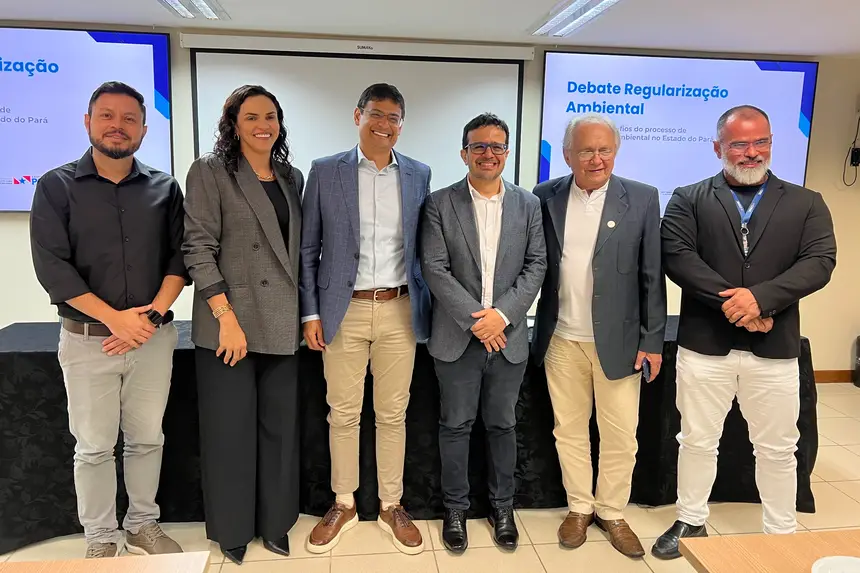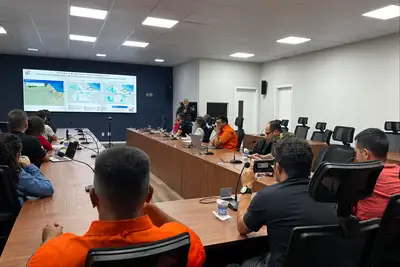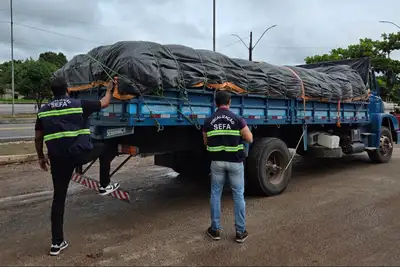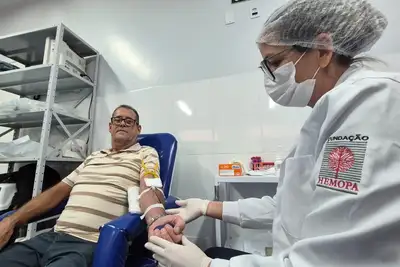Semas signs agreement that values rural producers by aligning the Pará industry with the sustainable production chain
The adhesion agreement further strengthens territorial planning and environmental regularity of agricultural producers in the State
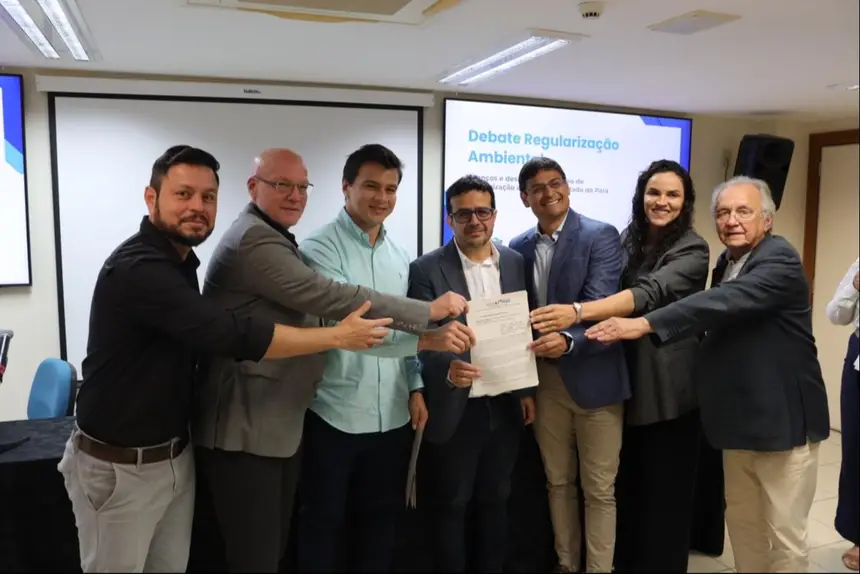
Visiting the strengthening of sustainable production chains in the State of Pará, the State Secretariat for the Environment, Climate and Sustainability (Semas) signed, this Thursday (9), an adhesion agreement with Cargill Agrícola S.A., for actions that strengthen the Regulariza Pará program and support rural producers who are part of the company's supply chain in Pará.
The ceremony took place during the panel "Environmental Regularization and Productive Development in Pará," promoted by the Federation of Industries of the State of Pará (Fiepa) in partnership with Semas and Cargill. The planning of actions prioritizes initiatives aimed at territorial planning as a strategy to mitigate the impacts of climate change, promoting sustainable land use, protecting sensitive areas, and integrating environmental policies with regional development.
At the signing, present were the Secretary of Semas, Raul Protázio Romão, the Deputy Secretary of Management and Environmental Regularity of Semas, Rodolpho Zahluth Bastos, representatives from Cargill, and the president of Fiepa, Alex Carvalho.
“The integration of the Pará industry with the environmental sector is the result of a relationship built over time and is now consolidating in a new moment for the State. Pará has been demonstrating that it is possible to align economic development, production, and sustainability. The origin of inputs needs to be environmentally correct, socially just, and in compliance with environmental regulations: this is how we build solid and responsible production chains. Our challenge is to strengthen traditional industry, ensuring a sustainable origin, while at the same time boosting the new Amazonian industry, based on biodiversity, research, innovation, and biotechnology. We are taking an important step to structure a strong, inclusive, and sustainable Amazonian industry that values the producer, preserves the forest, and generates development for the people of Pará,” emphasized Semas Secretary Raul Protázio.
The agreement, signed under the Regulariza Pará Program, involves an investment of R$ 37 million, which will be allocated to support family farming and strengthen integrated actions between the public and private sectors.
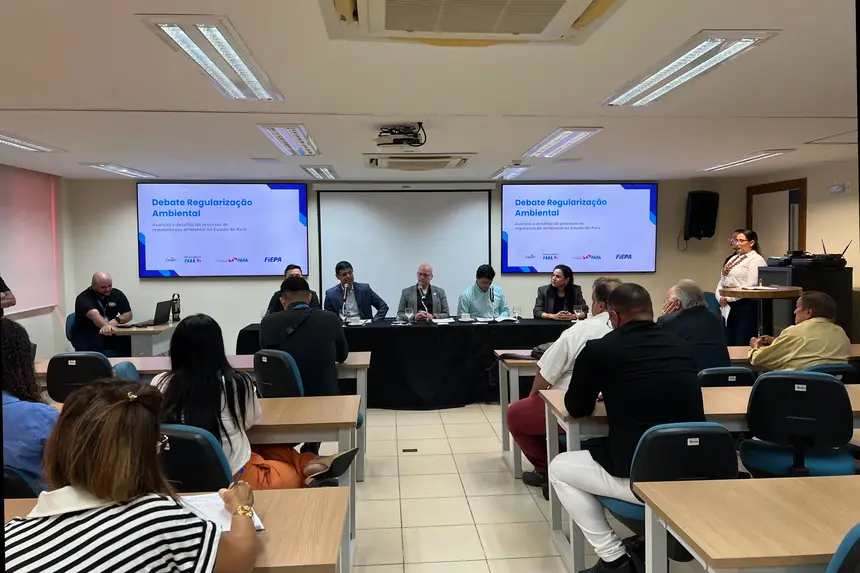
Among the main axes and actions planned are the indication of producers for analysis of the Rural Environmental Registry (CAR); conducting diagnostics of the indicated properties; addressing pending registrations in SICAR; validation of CAR; indication of environmental liabilities; adherence to the Environmental Regularization Program (PRA); implementation of the Project for the Restoration of Degraded and Altered Areas (PRADA); implementation of the Pai D’égua Food Project; implementation of the InfoCentro AWOJU Quilombola Project; implementation of the Family Agroecological Production System Project: Promoting sustainability in Rural Schools; implementation of the Female Protagonism and Bionegotiations in the Amazon Project; implementation of the Science at the Edge Project: Women Promoting Sustainable Food Systems in the Amazon and Matopiba; implementation of the VALORE Project – AssistAgro; implementation of the Roots of Transformation Program; Prosperous Communities Program – Rural; Prosperous Communities Program – Urban; Pará coalition to combat sexual violence against children and adolescents; and the protection of the Rights of Children and Adolescents.
These initiatives range from technical support for the environmental regularization of rural properties to integrated social actions that promote food security, female protagonism, and community strengthening, reinforcing the role of sustainability as a structuring axis of development.
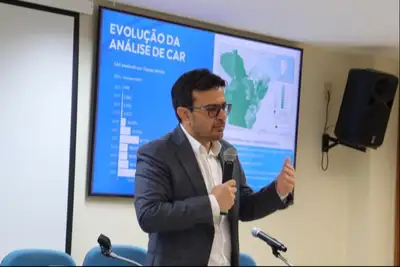
The Deputy Secretary of Semas, Rodolpho Zahluth Bastos, highlighted that “this agreement represents an important milestone in consolidating partnerships between the public and private sectors around the climate agenda. We have sought to engage with companies that understand the relevance of aligning their sustainability actions with public environmental policies, promoting regularization, forest restoration, and responsible development. The partnership with Cargill is an example of how it is possible to create a positive cycle, where everyone wins: the family farmer, with environmental regularity of their rural property; the State, which advances in the environmental compliance agenda; society, which benefits from conservation; and the company itself, which strengthens its sustainable operation in the market.”
For Fiepa, the agreement represents collective awareness. “Seeking the balance between environmental conservation and sustainable development is the great challenge of our time. For this development to be truly sustainable, it needs to unite economic competitiveness, social sensitivity, and environmental responsibility. What we are building here is the result of a collective awareness that combines compliance with laws with the need to make Pará grow in a balanced way. The Fiepa System positions itself as a partner of the State in this purpose, contributing with solutions and strengthening production chains to add value to local production,” emphasized the federation's president, Alex Carvalho.
“For Cargill, it is a great satisfaction to be present at this moment. What we are materializing here is the result of a dialogue journey that began about nine months ago, the result of a joint effort between Cargill and Semas to put into practice something that is a true differential of the State of Pará, which was a pioneer in regulating the use of agroforestry systems, with cocoa as one of the main economic vectors to restore degraded areas and promote environmental compliance. I firmly believe that Pará has all the conditions to stand out globally, delivering not only a quality product but also an environmental service to the world,” highlighted Bruno Cheble Ferreira, Director of Origination and Trading at Cargill.
For the next steps, a Work Plan is expected to be developed that will define objectives, justifications, axes, goals, actions, descriptions, products/results, responsibilities, deadlines, and other elements necessary to achieve the expected results under the agreement.
